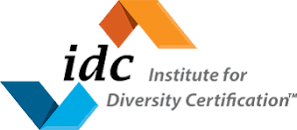Welcome to the topic “What does talent development mean?”.
Talent development is a trendy topic in today’s workplace. There have been many different definitions over the years, but the consistent definition since years is this:
Talent development includes getting the maximum benefit from the employee’s strengths and abilities and helping them to get stronger and grow within the business.
In training and development, this states:
- Realizing your employee’s potential and strength.
- Targeting particular areas of employee strength and interest.
- Shifting employees to areas which are more suitable for them.
- Monitoring groups and teams and how they will thrive over time.
- Planning talent development initiatives within an organization.
Talent development strategies to improve growth
Developing talent is not a one-time event. It’s crucial to have an intentional, well-planned, and expertly executed strategy for development that will last through years of success.
Are you looking to grow your company? Here are some talent development strategies that can help.
Get the C-suite on board.
It’s easy to see why the best leaders are committed to their talent development efforts. Research has found that they’re not only good for employees but also for business success. Many researches also state that as people progress in their careers and open the doors to greater levels of achievement, they often forget that others need help too.
Getting buy-in from high-level executives means helping them realize how their role as business leaders will impact the business. Employees need encouragement from their managers and bosses.
Ensure your organization’s mission is clearly defined
Whether your organization’s overall goal is compassionate healthcare or includes any other problem-solving service, ensure that your company’s mission and goals are clearly defined.
What would your company look like with a clear-eyed vision? How can you map out a strategy if there is no destination to guide it in the first place. This step also helps build a culture at work, which you will need for success down the road.
Identify the best talent to get you where you’re going
A company mission is an essential first step in creating a successful business. However, it’s not enough to have great ideas and hope they work out; you also need employees who can make your vision come true.
So before hiring new staff members or promoting existing ones from within the organization, take your time to think about what skill set would be necessary for your set business goals? You need to consider both hard and soft skills when dealing with this matter.
Look within
You’ll be surprised at the number of employees in your company that have the skills you need. It’s entirely possible they’re waiting for their next promotion to unleash those hidden talents and make an impact on the business.
By investing in your employees, you can give them a leg up for future success. That means investing in their education and skills, so they are ready when opportunity knocks at any level of employment. Have an entry-level field service technician who has shown potential? Offer them three months’ worth (or more) away from work while enrolled at any talent development program.
You need to provide the necessary skills and trainings required to plan and manage a new task or project and allows you to expand your services and other offerings.
Design and Plan talent development initiatives that work
A one-off training program is not likely to produce the talent development that sticks. Employees only attend once and soon forget everything they learn in order for it all just be a blur by Monday morning when their workweek starts again.
Talent development creativities that will be more beneficial include:
- Start with employee training needs and detailed analysis as mentioned above.
- Ensure that trainings and development programs are delivered in an appropriate way, such as hands-on combined projects for encouraging teamwork in an organization or long-term skills building.
- Offer opportunities to employees for practice as experiential learning is more effective than classroom learning.
- Always take employee feedback as it will help you in designing future trainings.
An effective training program is one that remains memorable. So take some time and try to create engaging and valuable resources for your employees.

Provide coaching opportunities
This one is extremely important for all Managers out there. They need to coach and check in with your staff members as it is a vital part of any business’s talent development plan.
However, this doesn’t mean that managers should arrange or coach the staff. Companies can find and recruit coaches from outside or from all over the organization. The point is delegation. Identify and depute coaches at all organizational levels who have the necessary skills and can check in with employees.
Talent development should be part of your company culture
If your company culture has a growth mindset where new talents are found and nurtured, then regular training should be conducted to support that goal and make it a part of your culture.
This will strengthen your employees and current teams and will also help in recruiting members in the future. Today all employees demand and crave growth. Try to create a workplace where learning and trainings are prioritized and integrated into your daily operations as people love to work at such places.
Remember Talent Development Is a Team Work
HR professionals are vital for both coordinating talent development strategies and making them successful. But all these initiatives will only be effective if they’re integrated into workplace relationships rather than treated as a separate task or set of responsibilities.
When higher management and other team members share a commitment to progress, your company’s venture in talent development will pay off really well.
How can HR Opportunity Help You:
HR Opportunity is a leader in talent development and training. We help companies develop skills for their workforce through consulting, workshops, courses & more!
We take care of all aspects from analysis to design so you can focus on what’s important – your people.
Have any questions regarding the topic “What does talent development mean?” feel free to comment below.
Read Also: What is people analytics?







1 thought on “What does talent development mean?”
Pingback: What is employee experience? - HR Opportunity- The HR Company